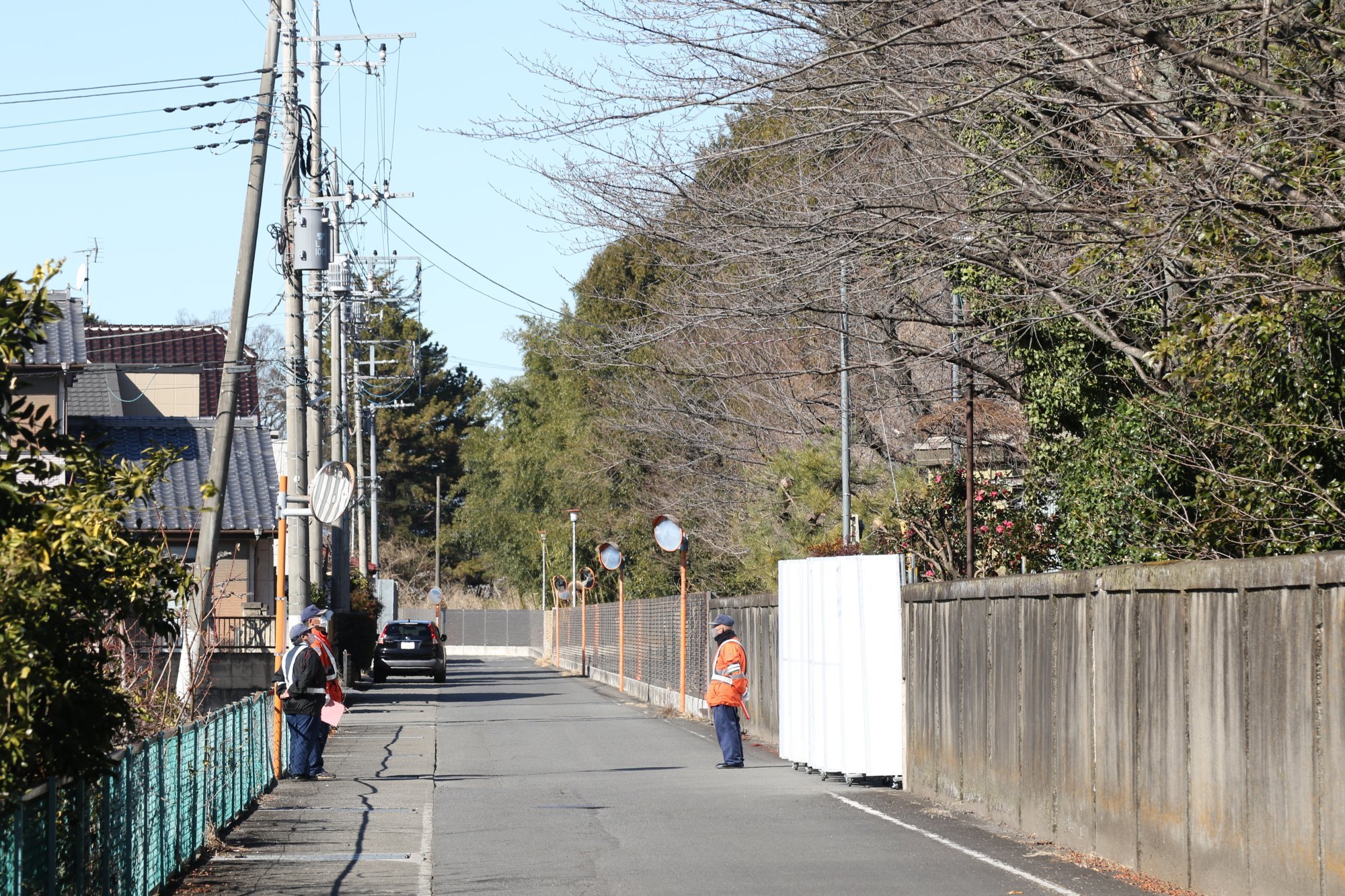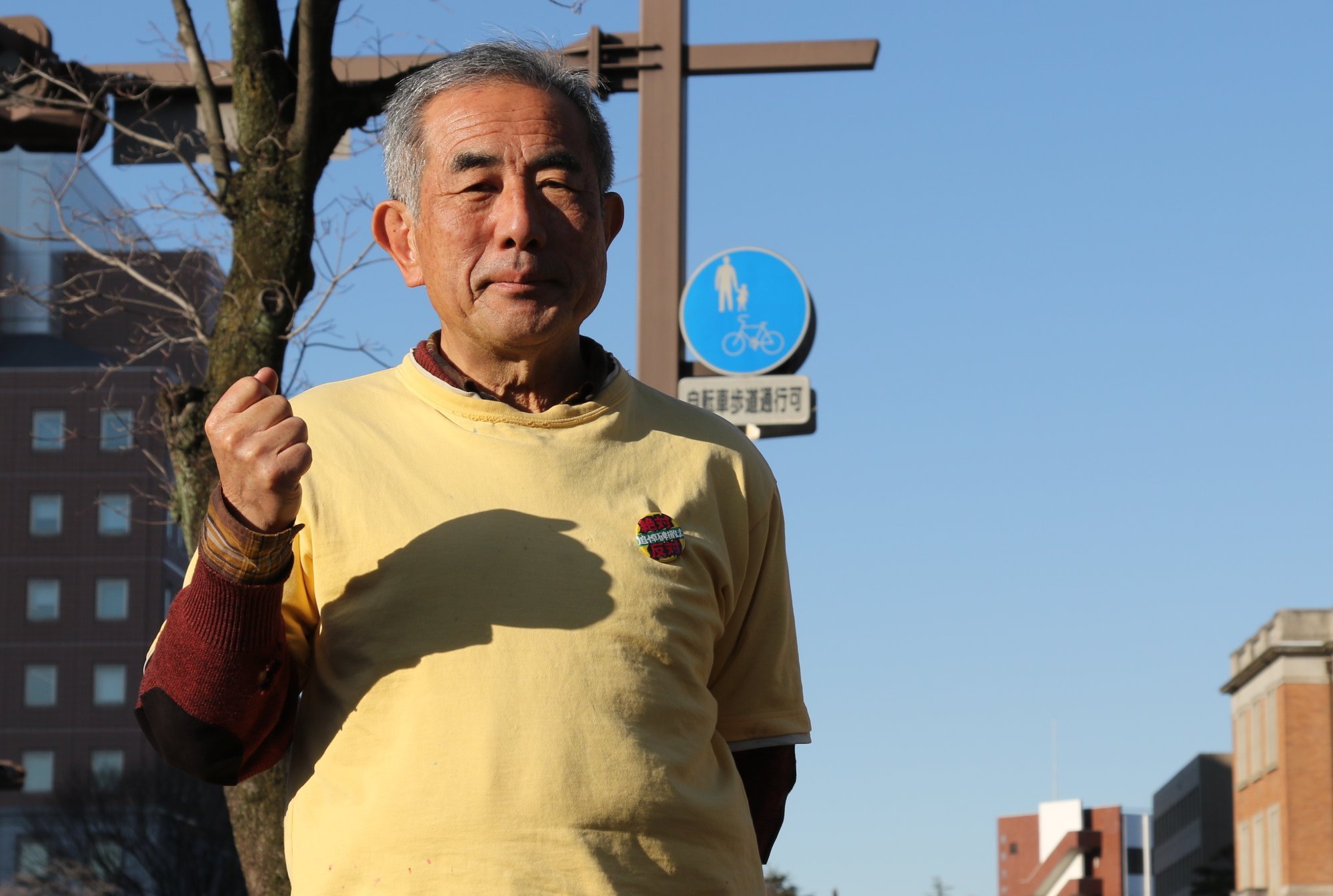Built in 2004, the memorial took the form of a stone wall with a plaque bearing the message “Remembrance, Reflection and Friendship” in Korean, Japanese and English, and a four-metre-tall gold pillar set into the concrete base. Visitors often left anti-war messages at the site, along with origami cranes that are a symbol of peace.

A citizens’ group obtained the permission of the prefectural government to erect the monument, but it quickly attracted criticism from conservatives on the grounds that it was “anti-Japanese”. A rival group claimed the memorial was becoming the focus of politically motivated events, which would contravene the qualified support of the prefecture.
In 2014, the prefectural government concluded that statements made at commemorative events in previous years amounted to political remarks and violated the original conditions set for the memorial. Among the controversial statements were claims that Koreans were “forcibly taken away” to work for Japanese companies.
When the prefecture declined to extend the permit for the monument after 10 years, the citizens’ group that erected and managed the site responded by suing the local authority, the Asahi newspaper reported.
The citizens’ group was in April last year ordered to remove the monument, although it ignored the order.

At a press conference on January 25, Gunma Governor Ichita Yamamoto said the citizens’ group had “repeatedly violated the conditions” set for the monument, turning it into a “political controversy”.
Yasuhito Fujii, secretary general of the citizens’ group, told the Asahi in an interview that the governor’s decision was “trying to erase the history of aggression”.
The left-leaning Asahi supported the campaign to preserve the memorial, calling for the governor to “stop immediately this outrageous action, which defies reasoning and understanding”, in an editorial published on January 30.
North Korea has similarly condemned the decision, with an article published by the state-owned Korea Central News Agency on February 7 accusing the prefecture of committing a “thrice-cursed crime”.
“The removal of the memorial monument is an unpardonable heinous crime of killing the victims of the Japanese imperialists’ forcible drafting twice and nothing can redeem the crime,” it said.
Another KCNA report published the same day described the decision as “fascist violence that insulted the Korean victims of forcible drafting and a denial of past crimes”.
Seoul is very worried about threats to the nation’s security from North Korea and wants to have better ties with its neighbours and allies
In South Korea, however, the demolition of the monument was covered in a news article published by Yonhap, but elicited virtually no other reaction in a media that has in the past been quick to criticise actions by Japan that are linked to its often brutal rule of the Korean peninsula in the years before Japan’s surrender ended World War II in 1945.
“The South Korean government has not expressed much concern about this news and that is because, I believe, President Yoon has placed priority on building better relations with Tokyo than previous governments,” said Yuji Hosaka, a professor of history and politics at Seoul’s Sejong University.
“Seoul is very worried about threats to the nation’s security from North Korea and wants to have better ties with its neighbours and allies, so the government is choosing to remain silent on this,” he told This Week in Asia.
And with the government glossing over the matter, domestic media that has in the past seized upon every opportunity to play up the historical differences between Japan and South Korea have similarly remained largely quiet.
“That means most people in Korea are not even aware that this is happening and that is why there are not more objections,” he added.
Kim Jong-un says he has the lawful right to destroy South Korea
Kim Jong-un says he has the lawful right to destroy South Korea
Robert Dujarric, co-director of the Institute of Contemporary Asian Studies at the Tokyo campus of Temple University, agreed that Yoon hoped to rebuild a bilateral relationship with Japan that took a battering under his progressive predecessor, Moon Jae-in.
“There will be a reaction among a hard core of activists, but it will be a small group and that will not be sufficient to derail the demolition of the monument or efforts to improve the relationship between Seoul and Tokyo,” he said.
“There is a lot going on there at the moment, and there is just not enough space for this story as well.”
Yoon has not, however, completely given up on reaching an agreement that would finally put the contentious issue of forced labourers to rest. On Wednesday, the president called on businesses in Japan and South Korea to cooperate and pay into a fund that provides compensation to plaintiffs seeking redress for the years in the colonial era they worked for Japanese companies.

